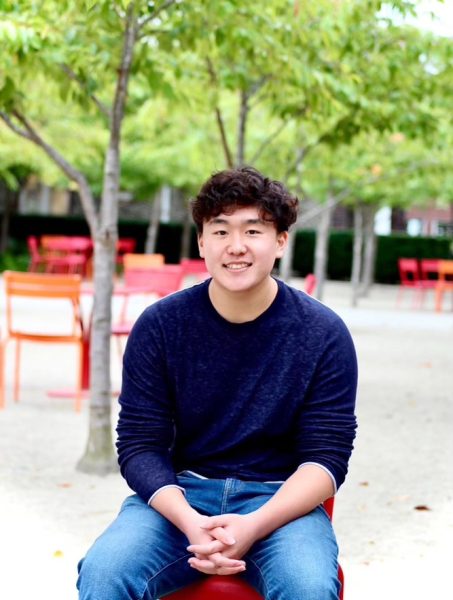Artificial Immune Systems: The Future?
May 15, 2023
Unprecedented. The word that has been heard continuously throughout the world for the past three years. Yet, unprecedented cannot begin to describe the chaos that traveled across the globe and changed every aspect of our lifestyle. Additionally, fear of continuous pandemics similar to that of COVID-19 brings rise to intense research into potential solutions for the future.
Artificial Immune Systems (AIS) show incredible promise in limiting the effects of future pandemics to prevent another global shutdown. The concept of AIS revolves around the integration of immunology and computing systems to create a constantly adapting immune system. With viruses like COVID-19 aggressively mutating all the time, consistent vaccines and boosters production put immense strain on the healthcare system. Sophomore Niko Cornell says, “I believe diseases will continue to impact everyday life, but advancements in medicine, including the development of artificial immune systems, could help mitigate their effects.” There is no question about the danger that pandemics hold in the future, as the globe is still reeling from the COVID-19 pandemic. The question now comes to our preparedness for almost certain future pandemics. Throughout history, humanity has conquered all living beasts and risen to the top of the food chain, all except our invisible friend the virus.
Mixed with the effects of climate change, outbreaks of disease have emerged at alarming rates with the warmer climates. Medical News Today explains that “between 1793 and 1905, there were nine devastating yellow fever epidemics. Seven coincided with a major El Niño episode. El Niño is a band of warm water that develops off the Pacific coast of South America every four years or so. The phenomenon results in high rainfall, warm springs, and hot summers in southern U.S. states.” Now, as the global climate shows trends of earlier, longer, and hotter summers, there is real concern over worse breeding grounds for more viral infections. Freshman Arianna Simms hits it spot on by stating that “climate change is currently the deadliest threat to humanity, but I also think we need to be vigilant about emerging infectious diseases.” It is not just the increased deadliness of viruses that is worrying, but the combination of warmer climates with weaknesses in our healthcare systems that will lead to even worse pandemics unseen before in history.
With the deadliness that future pandemics have been proven to hold, it is paramount that research is done in order to prevent another global shutdown. Researchers have already begun to develop new AISs. NewScientist reports how AISs are “helping immunologists make progress on some age-old problems. For example, Textor and his colleague Inge Wortel have built an AIS to test a long-standing idea in immunology that explains how T-cells learn what is a threat.” These new discoveries give a fascinating insight that can allow for rapid improvements in our immune system and an overall boost to our effectiveness against newly discovered viruses or heavily mutated ones. Senior Zachary Bi says that “diseases will continue to have a significant impact on everyday life” and that is the hard reality that must be combatted by rising technologies like AIS. These enhanced adaptable immune systems work to provide consistent protection against pathogens not seen before and provide complete cures for any disease instead of separate vaccines. For example, Scripps Research details how they made an important discovery “in the eventual development of a pan-coronavirus vaccine, which would be able to protect against potential coronaviruses that emerge in the future.”
Even with its overwhelming promise, AIS does have its ethical concerns as well as logistic issues. According to ScienceDirect, “Future point-of-care MoC (Model of Computation) models must fulfill rigid requirements if intended for clinical applications.” This highlights a large concern with AIS, as it requires a much more personalized approach in order to be effective. This raises issues on the scaling of AIS as well as the lack of present technology to create such a thing. Additionally, ethical concerns continue to question the reliability and social impacts of AIS. As personalized medicine becomes more prevalent, affordability to obtain treatments like AIS could result in a worsening of the social clashes and impact general welfare in the future. Junior Katie Cheng says that she “still has concerns about the potential risks and ethical considerations that still need to be addressed.”
Nonetheless, AIS has the potential to be a huge factor in the future and become the leading defense against future diseases. The deadliness and contagiousness of these viruses will increase over time, exacerbating the problems highlighted during the COVID-19 pandemic. As we face an uncertain future with evolving viruses and the increasing threat of pandemics, embracing AIS as a leading defense against future diseases becomes imperative. By leveraging the power of AIS, we can build a robust and proactive global defense system that enhances preparedness, strengthens response capabilities, and ultimately safeguards the well-being of individuals and communities worldwide. The potential is immense, and by investing in research, infrastructure, and interdisciplinary collaborations, we can forge a future where AIS plays a pivotal role in averting and mitigating the devastating impact of future infectious diseases.


